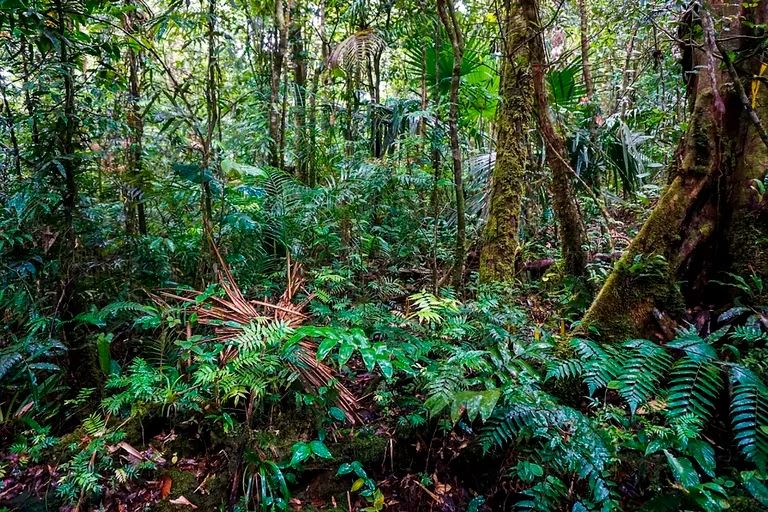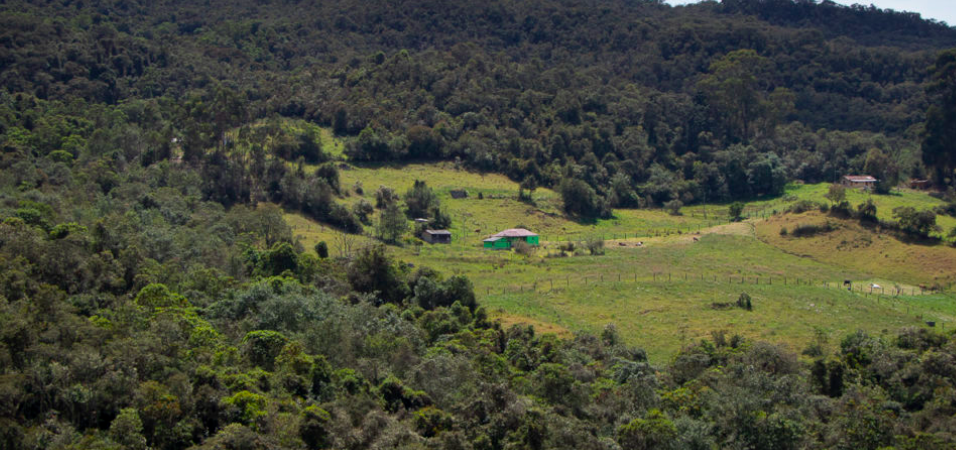The **tropical forests** are those places with abundant rainfall and temperatures that remain constant throughout the year. Some time ago they are going through a critical situation, mainly due to deforestation.
In this context, **Wildlife Conservation Society** (**WCS**) and the government of Brazil are seeking to implement a measure to protect them. The “Tropical Forests Forever Fund”.
## Tropical Forest Fund: the idea
In 2023, during the United Nations Climate Week in New York, **Carlos Rittl** from **WCS** warned the Minister of Environment of Brazil, **Marina Silva**, about the critical situation of the world’s forests.
25% had already been destroyed. The figure comes from a study by the organization, published in *Nature Communications* in 2020.
It revealed that of the **4,300 million hectares of forests** remaining on the planet, only **40%** (i.e., 1,700 million hectares) remain virtually intact. But less than 30% of these areas are officially protected.
The meeting in 2023 marked the beginning of the WCS partnership with the Brazilian government to create an innovative funding initiative to address this scenario.
The **Tropical Forests Forever Fund** (TFFF, in English).
“Forests in their natural state play an essential role in climate, biodiversity, and the survival of people. But there is a huge challenge to prevent their degradation and deforestation,” affirmed Rittl.
## Objectives of the Fund
The **Tropical Forests Forever Fund** (TFFF) aims to **contribute to the conservation of tropical** and subtropical forests in developing countries.

In total, there are **1,200 million hectares** of these green areas spread across 76 countries. Most are concentrated mainly in the Amazon, the Congo basin, and Southeast Asia.
“The goal of the TFFF is to reward countries that are already controlling their deforestation levels but still need to invest to keep the forests standing,” stated **Garo Batmanian**, CEO of the Brazilian Forest Service.
The organization manages Brazil’s public forests and represented the Ministry of Environment in the fund’s development.
## The differential
**Forest protection mechanisms usually pay** to avoid deforestation. They are based on calculations of the carbon that was not released into the atmosphere by leaving the trees standing.
However, following this logic, a country that achieves zero deforestation **would stop receiving financial aid** because it would no longer be reducing its emissions.
Therefore, the TFFF aims to fill this gap by **continuing to pay nations** for keeping the forests preserved.
The TFFF will also differentiate itself, according to its creators, by the way it calculates the forest areas in question. This is because adding up the carbon reserves of all tropical countries, as done in various mechanisms, would be a complex and costly task.
While monitoring **forests by satellite and remote sensing** is simpler and more accessible.
## When will it be operational
The fund’s idea was presented by the Brazilian government in 2023, at COP28 held in the **United Arab Emirates**.
It is still being developed by the government with the technical support of various international conservation NGOs, intergovernmental agencies, financial institutions, and think tanks.
In March 2025, a **steering committee met in London, United Kingdom**, to finalize the TFFF’s design. The publication of another document, the conceptual note 2.0, is scheduled for April and will be accompanied by discussions with countries, potential investors, and civil society. **This committee is made up of representatives from 12 countries.**

The fund will be **managed by a multilateral institution**, which will be defined once its design is completed. One of the options is the World Bank, which followed the discussions.
To participate in the TFFF, **tropical countries must have an annual deforestation rate not exceeding 0.5%** of the total forest area and show a downward trend compared to the year before applying for the fund.

